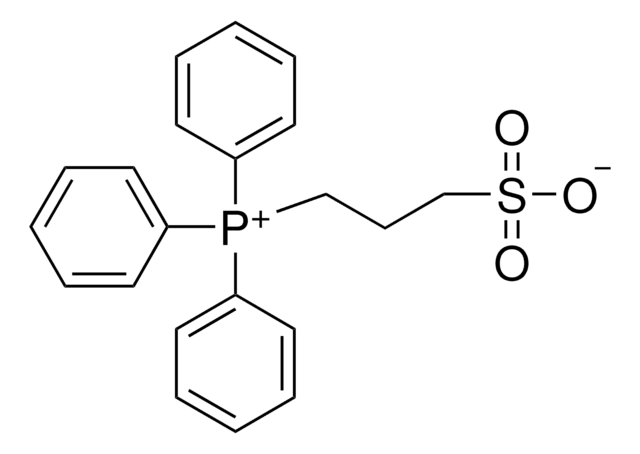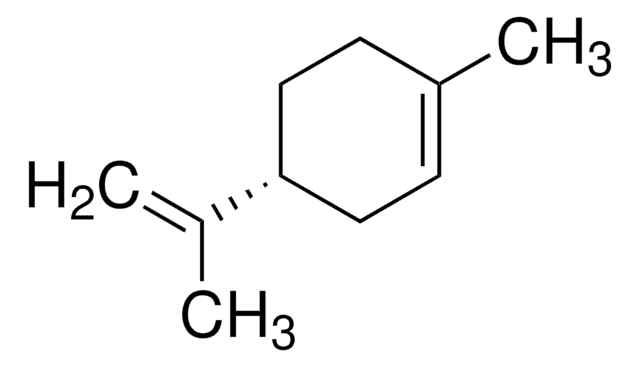58997
SUPELCOSIL™ LC-SCX HPLC Column
5 μm particle size, L × I.D. 25 cm × 4.6 mm
Synonym(s):
SCX column
Sign Into View Organizational & Contract Pricing
All Photos(1)
About This Item
UNSPSC Code:
41115700
eCl@ss:
32110501
Recommended Products
Agency
suitable for USP L52
Quality Level
manufacturer/tradename
SUPELCOSIL™
parameter
≤70 °C temp. limit
400 bar pressure (5801 psi)
technique(s)
HPLC: suitable
L × I.D.
25 cm × 4.6 mm
surface area
170 m2/g
matrix
silica gel, spherical particle platform
matrix active group
sulfonic acid, propyl- phase
particle size
5 μm
pore size
120 Å
pH range
2-7.5
application(s)
food and beverages
separation technique
cation exchange
Looking for similar products? Visit Product Comparison Guide
Related Categories
General description
The LC-SCX cation-exchange columns have strongly acidic propylsulfonic acid groups and are used for separating cations. Adjust pH, ionic strength, and organic modifier concentration to control retention and selectivity.
Application
Supelcosil™ LC-SCX HPLC column was used during the purification and characterization of 8-hydroxyguanine (oh8Gua), from Human Urine. It was used as a cation exchange column, during measurement and extraction of water-soluble arsenic, freeze-dried marine animal tissues, using high performance liquid chromatography-inductively coupled plasma mass spectrometry (HPLC-ICP-MS). It was also used in the chromatographic separation of arsenic compounds.
Supelcosil™ LC-SCX HPLC column was used during the purification and characterization of 8-hydroxyguanine (oh8Gua), from Human Urine. It was used as a cation exchange column, during measurement and extraction of water-soluble arsenic, freeze-dried marine animal tissues, using high performance liquid chromatography-inductively coupled plasma mass spectrometry (HPLC-ICP-MS). It was also used in the chromatographic separation of arsenic compounds. It may be used as a cation-exchange column for the separation, identification and determination of arsenic compounds in oyster tissue and marine brown alga like Hijiki fuziforme using high performance liquid chromatography coupled with inductively coupled plasma mass spectrometry (HPLC-ICP-MS).
Legal Information
SUPELCOSIL is a trademark of Sigma-Aldrich Co. LLC
guard cartridge
Product No.
Description
Pricing
Storage Class Code
13 - Non Combustible Solids
WGK
WGK 1
Flash Point(F)
Not applicable
Flash Point(C)
Not applicable
Choose from one of the most recent versions:
Already Own This Product?
Find documentation for the products that you have recently purchased in the Document Library.
Customers Also Viewed
Comparison of three methods for the extraction of arsenic compounds from the NRCC standard reference material DORM-2 and the brown alga Hijiki fuziforme
Kuehnelt D, et al.
Applied Organometallic Chemistry, 15(6), 445-456 (2001)
Urinary 8-hydroxy-2'-deoxyguanosine as a biological marker of in vivo oxidative DNA damage.
Shigenaga MK
Proceedings of the National Academy of Sciences of the USA, 86 (24), 9697-9701 (1989)
Measurement of water-soluble arsenic species in freeze-dried marine animal tissues by microwave-assisted extraction and HPLC-ICP-MS.
Kirby J and Maher W.
Journal of Analytical Atomic Spectrometry, 17 (8), 838-843 (2002)
Determination of total cationic and total anionic arsenic species in oyster tissue using microwave-assisted extraction followed by HPLC?ICP-MS
Chatterjee A
Talanta, 51(2), 303-314 (2000)
Determination of arsenic compounds in earthworms.
GEISZINGER A,.
Environmental Science & Technology, 32 (15), 2238-2243 (1998)
Our team of scientists has experience in all areas of research including Life Science, Material Science, Chemical Synthesis, Chromatography, Analytical and many others.
Contact Technical Service




